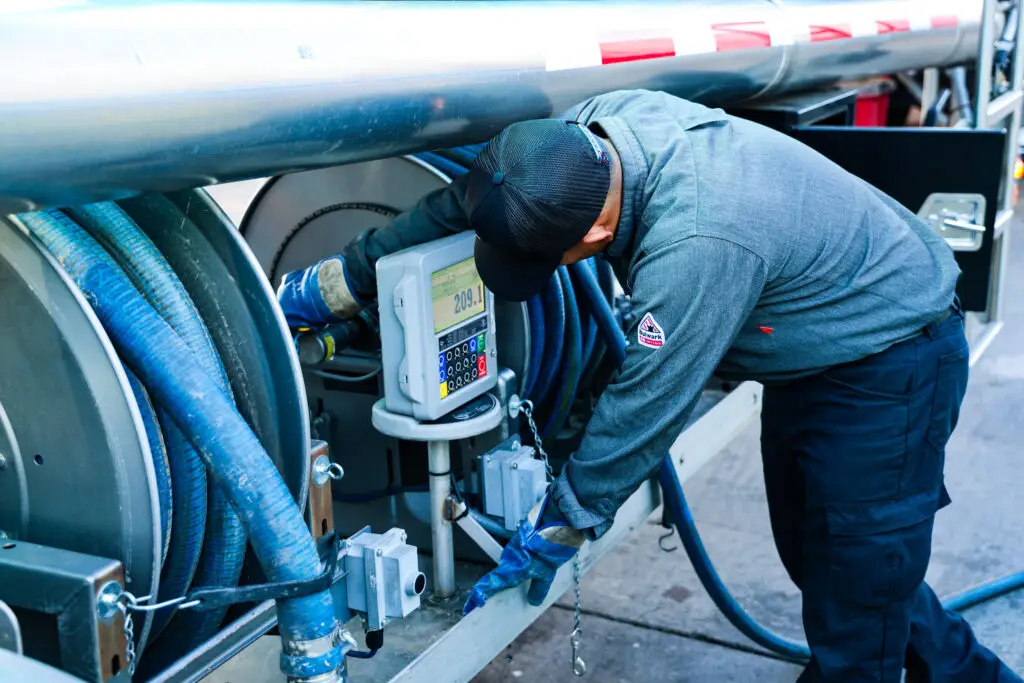How to Prepare Your Fleet for Seasonal Fuel Challenges
Managing a fleet is not just about putting vehicles on the road—it’s about being proactive and prepared for seasonal changes. One commonly overlooked factor is how fluctuating temperatures impact fuel. To avoid costly problems and keep your fleet running smoothly, it’s essential to prepare for seasonal fuel challenges. This means not just reacting when issues arise but implementing superior seasonal fuel planning that protects engines and keeps costs manageable.
Temperature changes can significantly affect fuel performance. In winter, diesel can gel, making trucks difficult to start. In summer, fuel can evaporate more quickly, leading to engine overheating unless the fuel blend is properly balanced. Small missteps or neglect in adjusting your fuel plan can result in expensive downtime, missed deliveries, frustrated drivers, and unexpected repair bills.
Experienced fleet managers know that planning isn’t optional—it’s essential to ensure their operations run seamlessly.
Learn How Seasons Influence Your Fuel
Summer presents its own set of challenges. High temperatures cause fuel to expand and evaporate more quickly, which reduces fuel efficiency and hampers engine performance. Proper summer fuel calibration is essential to prevent excessive fuel consumption and avoid vapor lock—a condition where fuel vaporizes too early, leading to engine stalling.
Using the wrong fuel type or neglecting maintenance at any time of the year can result in wasted time and money. Understanding how fuel responds to seasonal changes is key to proactively avoiding issues before they arise.
Make Seasonal Fuel Switching a Habit
While fuel suppliers will make their own seasonal adjustments, it’s important not to rely solely on them. Effective fuel management requires open communication with your supplier. Ask when they plan to transition to winter or summer blends, ensure your fueling stations are stocked appropriately, and educate your drivers on what they’re dispensing. Clear communication and proactive planning help avoid surprises.
Fuel transition plans aren’t just about switching blends—they’re about carefully phasing transitions to ensure your vehicles are always equipped to handle the conditions, minimizing risks and keeping your operations running smoothly.
Winter Diesel Preparation: More Than Just Fuel
Winter preparation goes beyond simply switching to a winter fuel blend—it involves ensuring the entire fuel system is ready for cold weather. Fuel tanks should be inspected for water contamination, as water can freeze and block fuel lines. Using high-quality anti-gel additives that prevent gelling and minimize water buildup is essential for keeping your trucks road-ready during freezing temperatures.
It’s equally important to notify drivers about winter operations protocols. Trucks need to run on winter diesel whenever temperatures drop below 30°F, and engines should be allowed to heat up properly before heading out. Additionally, equipping vehicles with emergency kits that include anti-gel treatments can be a lifesaver if a truck becomes stranded with gelled fuel away from a depot.
Winter preparation isn’t a one-time task or just about fuel switching—it’s a continuous process of maintaining every part of your system to perform reliably in harsh conditions. Proper planning ensures your fleet stays on the road, no matter how cold it gets.


Summer Fuel Adjustments and Warm Weather Challenges
While winter brings cold-related challenges, summer presents its own set of problems. High temperatures accelerate fuel evaporation, reducing the energy you get from each gallon. Without proper summer fuel adjustments, your fleet will consume more fuel, impacting profitability without you even realizing it. Summer heat also places additional stress on engines, pushing them beyond their normal operating capacity.
Trucks hauling heavy loads over long distances are especially prone to overheating, particularly if the wrong fuel blend is used. Summer-specific light fuel blends are designed to resist evaporation and maintain stable combustion temperatures, ensuring efficient performance under extreme conditions.
Your summer maintenance program should also include essential checks such as inspecting the cooling system, examining hoses for wear and tear, and ensuring ventilation systems are functioning at peak capacity. Proactively addressing these challenges ensures your vehicles perform optimally, even when temperatures soar into triple digits.
Fuel Transition Strategies That Actually Work
The key to successfully managing seasonal changes lies in having well-planned fuel transition strategies. Reactive responses to problems after they occur are not enough. Effective managers implement systems that anticipate and prepare for changes well in advance. Gradually introducing new fuel blends is one of the most critical aspects of this approach.
Rather than waiting for drastic temperature shifts, you can begin mixing small amounts of winter diesel into your tanks as early as mid-fall. Similarly, in spring, phasing out winter additives gradually as temperatures rise allows engines to adapt naturally without compromising performance.
In addition to blending fuels strategically, monitoring fuel tank temperatures and using high-quality fuel filters helps protect your fleet from unexpected weather conditions. Proper seasonal fuel planning ensures your operations remain smooth and efficient, regardless of external weather challenges.
Training Drivers to Overcome Seasonal Challenges
Fleet managers today are often so focused on technology that they overlook a critical element: the drivers. Drivers are the first line of defense when it comes to identifying and addressing fuel-related issues. They are the ones who notice when an engine isn’t running smoothly or when fuel efficiency seems off, making their training essential in preventing and mitigating problems.
In winter, drivers should be taught to idle engines longer to ensure they warm up properly. They also need to recognize the symptoms of fuel gelling and know how to use emergency anti-gel products effectively. In summer, training should emphasize monitoring temperature gauges closely and reporting signs of overheating immediately.
Encouraging drivers to perform quick visual inspections for leaks, unusual odors, or performance irregularities can help identify small issues before they escalate into major problems. Engaged and knowledgeable drivers are a crucial part of a successful seasonal fuel strategy, helping to ensure smooth and efficient fleet operations year-round.
Long-Term Benefits of Smart Fuel Management
Smart seasonal fuel planning not only prevents seasonal disasters but also strengthens your entire business. By proactively addressing seasonal challenges, you minimize downtime, make fuel costs predictable, and ensure consistent vehicle performance throughout the year. Happy drivers who aren’t dealing with clogged engines or overheated trucks are more productive and less likely to leave for another company.
Additionally, effective seasonal fuel management helps extend the lifespan of your fleet. Engines protected from seasonal extremes experience less wear and tear, leading to fewer breakdowns and lower repair costs. This proactive approach also boosts your reputation. Customers appreciate timely deliveries, regardless of the weather, and their loyalty builds on that reliability, resulting in repeat business.
Fuel switch strategies, winter diesel preparation, and summer fuel adjustments may seem like quiet, behind-the-scenes actions, but collectively, they are the foundation of a professional fleet operation. By optimizing fuel efficiency year-round, you gain a competitive edge that many others overlook.
Seasonal Fuel Success Is All About Preparation
In fleet management, waiting for disaster to strike is a surefire way to lose money, waste time, and harm your business. By incorporating seasonal fuel planning into your overall operations agenda, you ensure your fleet stays in constant motion, no matter the weather.
Whether it’s through winter diesel maintenance, smart summer fuel optimization, or efficient fuel transition planning, every decision you make today helps prevent problems tomorrow. Thoughtful, proactive planning equips you to tackle seasonal fuel challenges head-on, keeping your trucks on the road, your drivers satisfied, and your customers happy.

